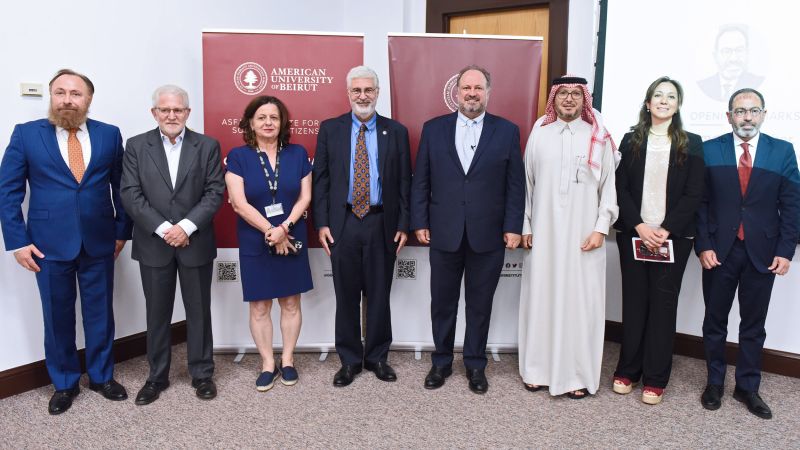Leading scholars and diplomats gathered at the American University of Beirut (AUB) this week to examine Saudi Arabia’s ambitious reform agenda under Vision 2030. Hosted by the Good Governance and Citizenship Observatory (GGCO) at the Asfari Institute, the panel discussion, titled “Hawkama and Vision 2030: The Reform of Governance in Saudi Arabia”, featured keynote speaker Professor Bernard Haykel of Princeton University, a prominent authority on the Gulf region.
The discussion focused on how Saudi Arabia’s sweeping institutional changes are driving greater transparency, accountability, and sustainability. These reforms, many rooted in the country’s Vision 2030 agenda, aim to reshape governance and societal dynamics across the kingdom.
Attendees included high-profile diplomats such as Saudi Ambassador to Lebanon Dr. Waleed Al-Bukhari, Spanish Ambassador Jesús Santos Aguado, and Mexican Ambassador Francisco Romero Bock. Also present were Lebanon’s Minister of State for Administrative Reform, Dr. Fadi Makki, and senior AUB leadership, including President Dr. Fadlo Khuri and Provost Dr. Zaher Dawy.
Opening the event, Dr. Lina Abou-Habib, Director of the Asfari Institute, framed the conversation within the region’s broader political shifts. “We are in a moment of deep transition and instability,” she said. “This panel helps us understand emerging initiatives shaping governance in the Arab world.”
Dr. Simon Kachar, GGCO Director, underscored the importance of exploring governance as a foundational pillar of reform. “Vision 2030 is not just about economic change,” he said. “It’s about building transparent, accountable, and inclusive institutions.”
Dr. Fadlo Khuri emphasized the regional relevance of Saudi reforms. “Understanding what is happening in Saudi Arabia is critical—not just for Lebanon, but for the entire region,” he remarked. He praised Professor Haykel’s balanced and candid insights, calling him “arguably the most honest and insightful expert on the Gulf.”
Moderated by Dr. Tania Haddad, associate professor of public administration at AUB, the panel examined four key themes: the origins of Saudi reforms, the role of leadership, changing state-society dynamics, and mechanisms for institutional accountability.
Professor Haykel noted that the reform drive stems from a collective awareness that the pre-2015 governance model was unsustainable. “There is a brutal honesty in Saudi leadership about the need for change,” he said, contrasting it with the rest of the Gulf region.
He also highlighted how reforms have altered the national identity narrative, using patriotism and civic responsibility to build social cohesion while introducing new levels of institutional transparency.
The session concluded with a robust Q&A, reflecting on the long-term viability of the reforms and their broader regional implications.
As Vision 2030 continues to unfold, experts say Saudi Arabia’s evolving model of governance will remain under close regional and international observation.

